
Harnessing the Power of Data: Tackling Tobacco Industry Influence in Africa
Reliable, accessible data is essential for effective tobacco control, enabling policymakers to implement stronger, evidence-based responses to evolving industry tactics and public health challenges. As spotlighted by this year’s World No Tobacco Day, themed “Unmasking the Appeal: Exposing Industry Tactics on Tobacco and Nicotine Products,” the tobacco industry continues to market its products, especially to youth, through increasingly deceptive strategies.
In support of stronger, data-driven policy responses, Development Gateway’s (DG) Tobacco Control Data Initiative (TCDI), launched in 2019 with funding from the Gates Foundation, developed country-specific websites for Kenya, Nigeria, Zambia, South Africa, Ethiopia, and the DRC. These platforms centralize trustworthy, reliable data on topics ranging from taxation and illicit trade to health burden and industry interference.
Complementing this work, DG’s Data on Youth and Tobacco in Africa (DaYTA) program, which began in 2023, focuses on filling knowledge gaps around tobacco use among 10- to 17-year-olds in Kenya, Nigeria, and the DRC. Together, these initiatives support ongoing efforts across sub-Saharan Africa to counter industry influence and strengthen tobacco control. This blog shares key research findings on tobacco industry interference from TCDI-focus countries.
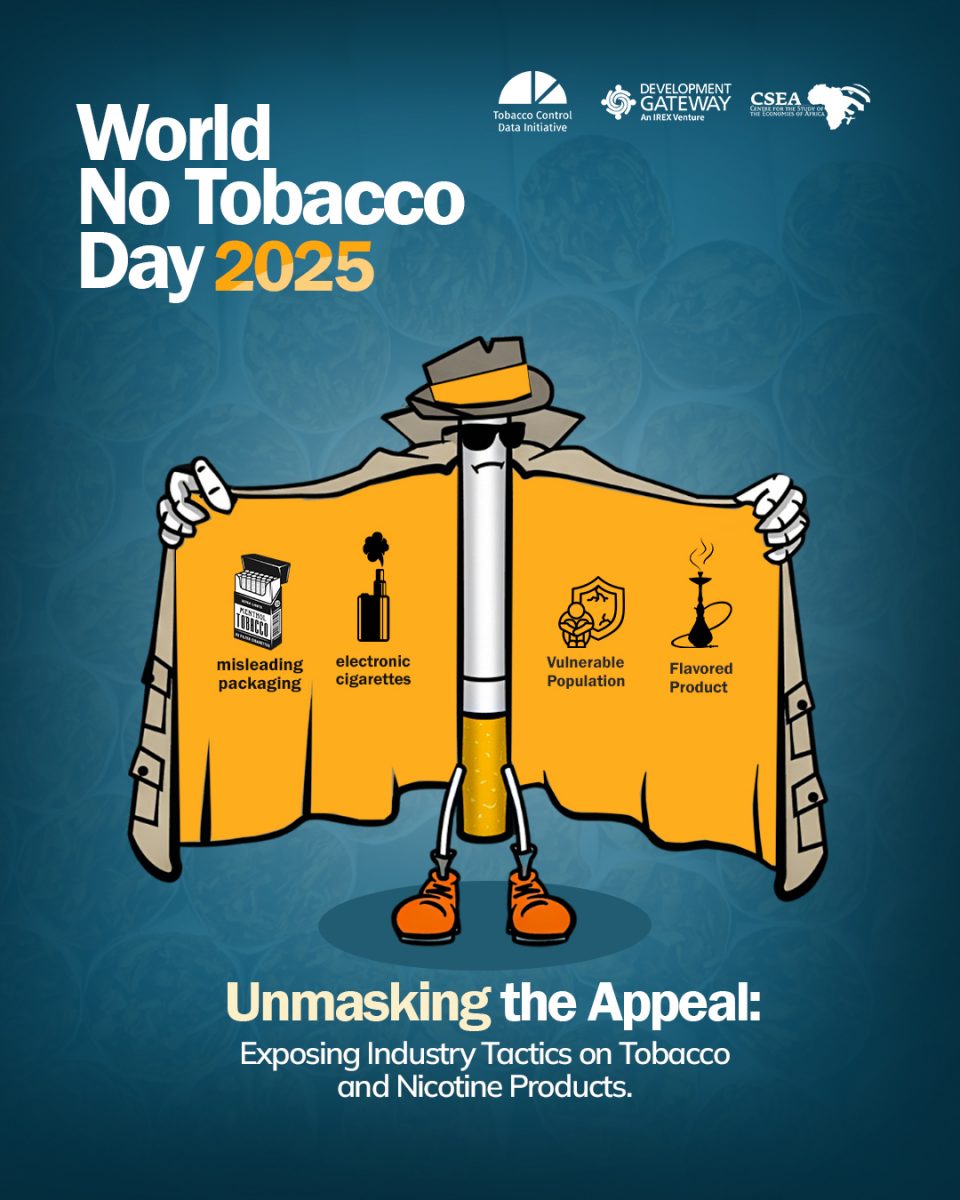
Unmasking the Appeal: How Tobacco Industry Strategies Hinder Effective Tobacco Control in Africa
Across Africa, the tobacco industry continues to employ various strategies aimed at maintaining a favorable operating environment and expanding its customer base. As a profit-driven sector, its approaches often include efforts to influence public perception, delay the implementation of health regulations, or frame its activities in ways that minimize perceived harm. Such practices can complicate policy development and slow the adoption of effective tobacco control measures, posing significant challenges to public health progress.
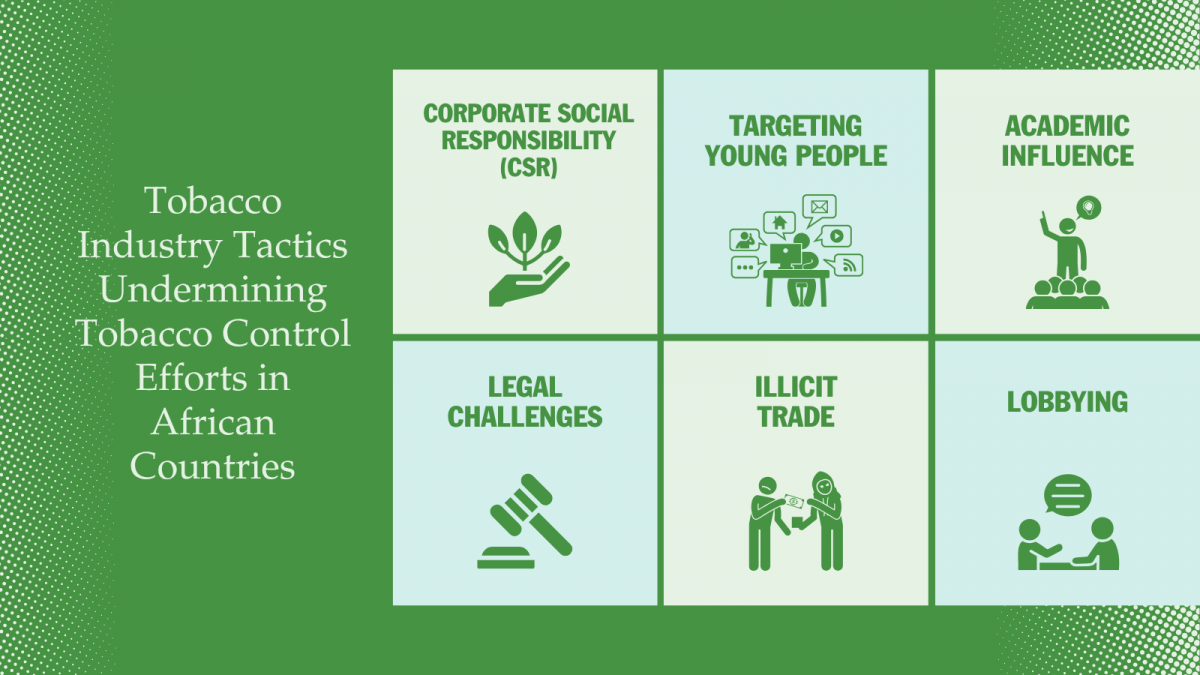
In Nigeria, for instance, the British American Tobacco Nigeria (BATN) Foundation targets National Youth Service Corps (NYSC) members through agricultural entrepreneurship initiatives, such as the Farmers for the Future Grant and the Graduate Agripreneur Program, reflecting a major tactic the industry uses to deflect attention from the harms of its products.
In Zambia, the Centre for Primary Care Research (CPCR), one of TCDI’s implementing partners, revealed several alarming strategies used by the industry to attract young people to tobacco and nicotine products. In their report “Big Tobacco, Tiny Targets”, published in March 2025, researchers discovered that at least one type of tobacco product was available for purchase in 99% of points of sale (POS) located within 100 meters of schools and playgrounds. In over half of these POS, flavoured cigarettes were available for purchase.
To address these realities, generating reliable, evidence-based insights is crucial in equipping public health actors with the tools needed to critically evaluate industry claims, counter misinformation, and advocate for stronger, more resilient policy and legislative frameworks.
Between April and June 2024, DaYTA conducted a household-based, nationally representative survey that shed light on the reasons for initiating use of tobacco and nicotine products amongst adolescents, as well as the widespread exposure they face through both digital and in-person advertising and promotional channels. The following infographics highlight some of these key insights:
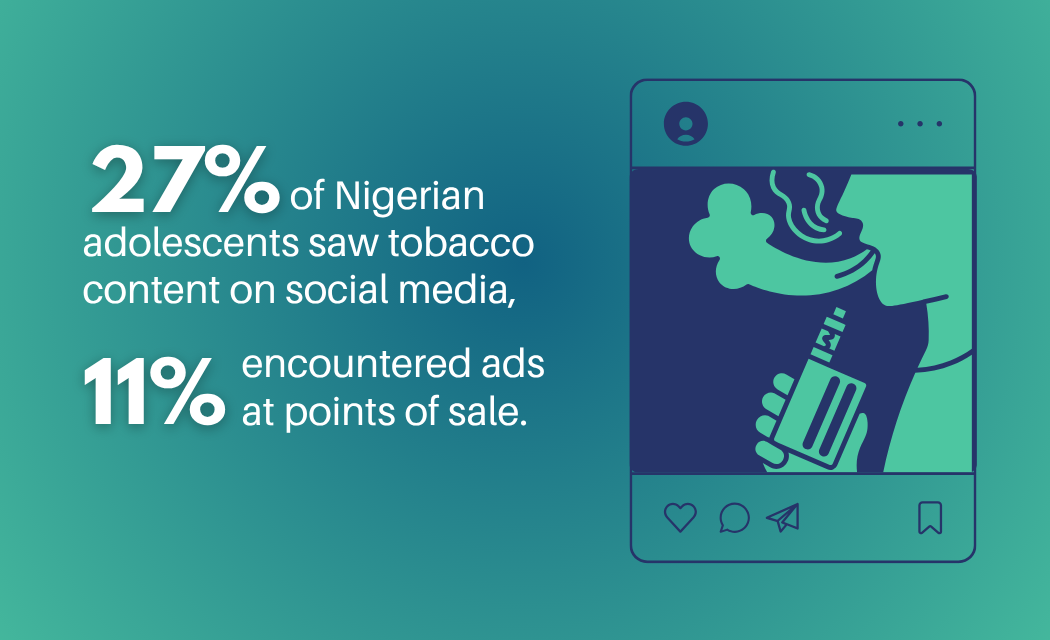
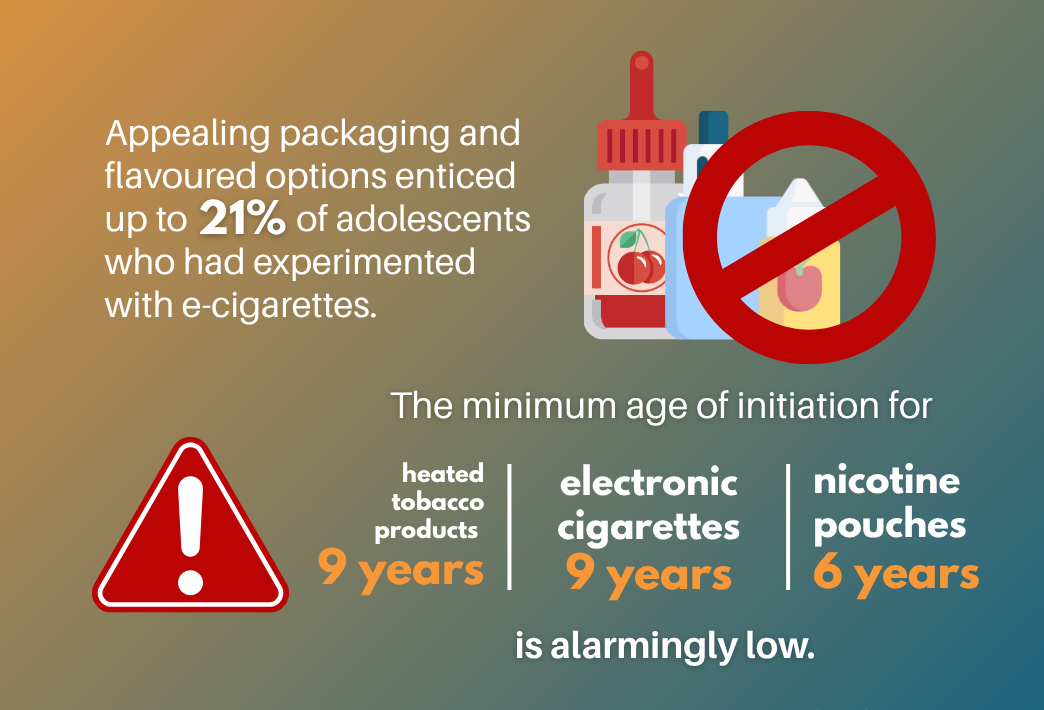
Strengthening Tobacco Control in Zambia and the Democratic Republic of the Congo
In light of the industry’s persistent efforts to obstruct tobacco control, TCDI developed dedicated industry interference pages tailored to each focus country, which compile and analyze common arguments used by the industry. These resources are designed to provide stakeholders with a deeper understanding of industry tactics and support countermeasures rooted in evidence. Timely, context-specific information on these strategies is vital for tobacco control advocates to effectively monitor, expose, and counter industry influence.
As part of TCDI’s primary research across the six focus countries, teams in the DRC and Zambia investigated the prevalence of illicit cigarette trade, a significant barrier to effective tobacco control on both the enforcement and implementation fronts. In 2022, the Zambia study found that 12.2% of over 118,000 discarded packs analyzed were illicit, lacking Zambia Revenue Authority tax stamps, required health warnings, or bearing duty-free labels despite being sold openly. Of particular concern, 10.1% of packs lacked a ZRA stamp, indicating a significant loss of government tax revenue. A summary of the study is available here.
In 2023, 8.6% of the cigarette market in DRC was found to be illicit, surging to over 51% if all imported yellow-stamped packs were included, according to the study. To support enforcement efforts, the team trained 26 provincial health inspectors, one from each province, on both the World Health Organization (WHO) Framework Convention on Tobacco Control (FCTC) and the survey’s key findings. Consequently, during this year’s WNTD, the DRC’s Minister of Health, Dr. Roger Kamba, joined forces with civil society to lead a public march to the National Assembly, where they delivered a formal memorandum urging lawmakers to ratify the Protocol to Eliminate Illicit Trade in Tobacco Products, the first protocol under the WHO FCTC and an independent international treaty designed to combat illicit tobacco trade worldwide.
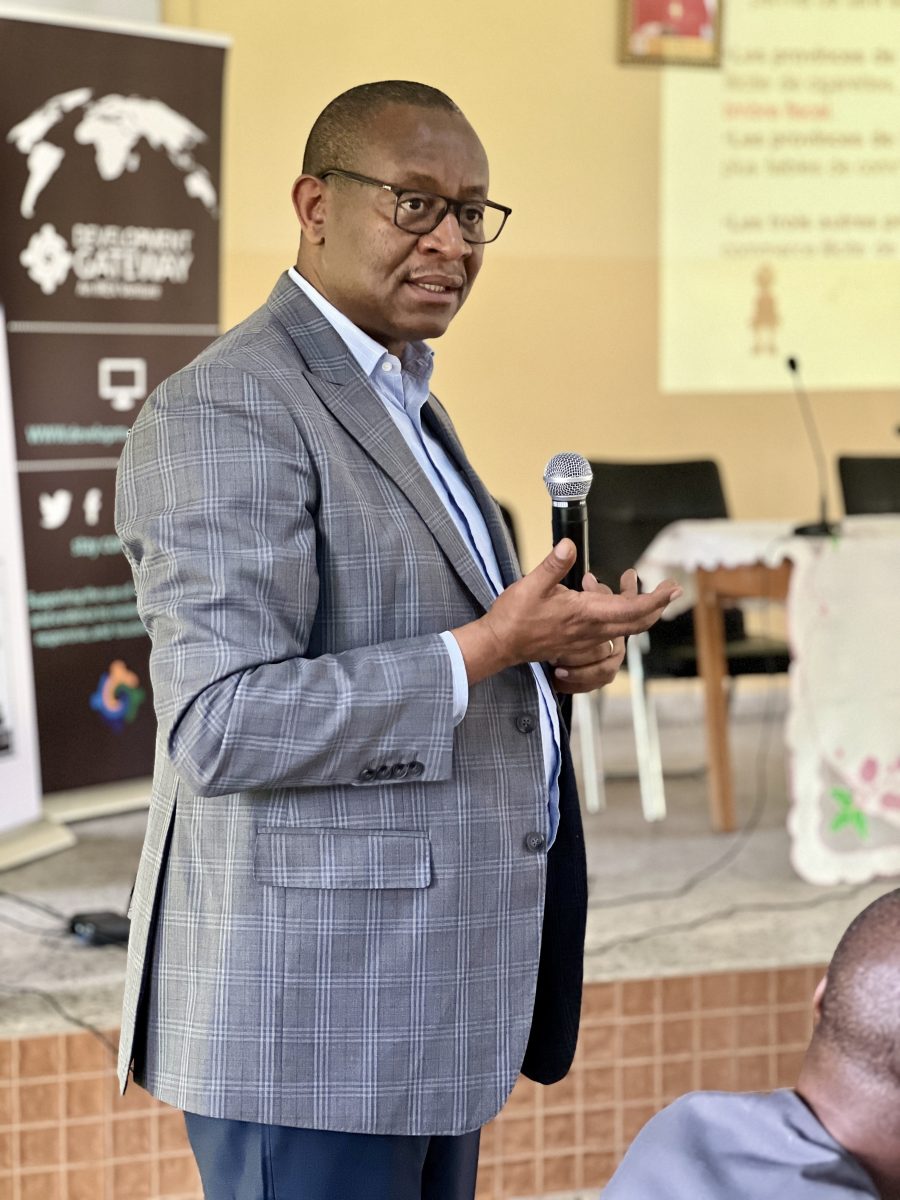
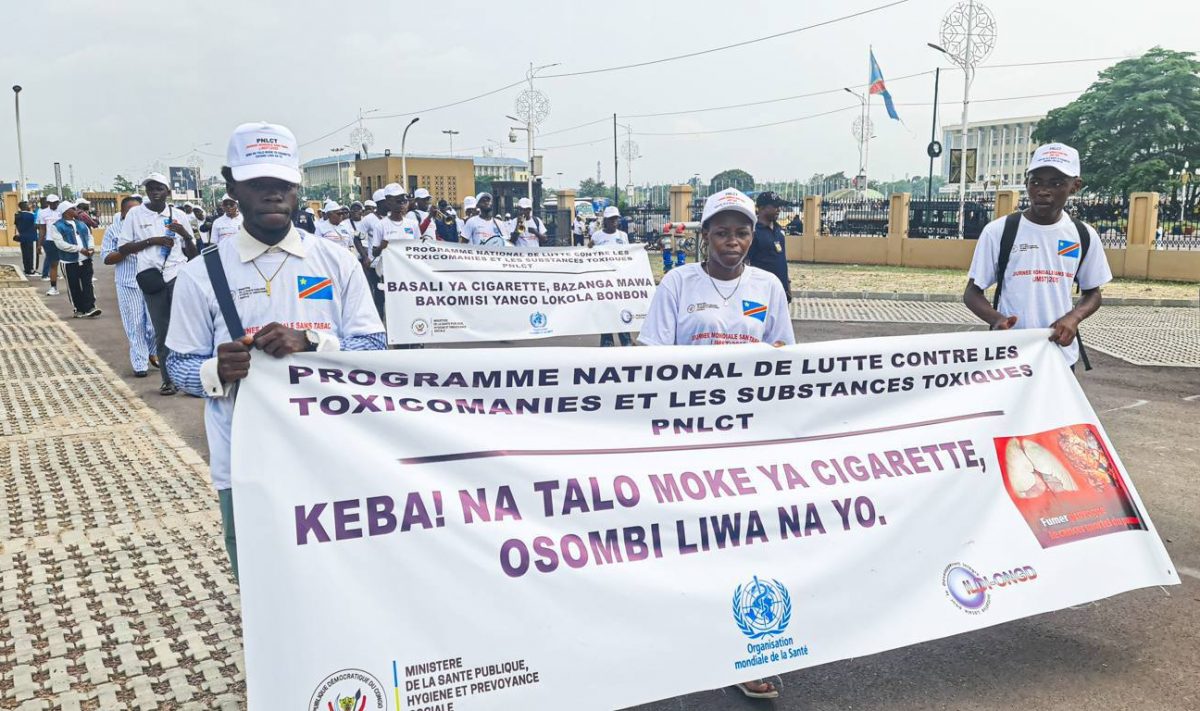
This primary research represents a critical path forward in generating local evidence to guide policy, offering the most precise picture yet of illicit tobacco trade in Zambia and the DRC. It underscores the urgent need for enhanced border control, better regulation of tobacco distribution, and effective systems to track and trace these products
From Evidence to Action: How Our Stakeholders Are Harnessing TCDI Data to Counter Industry Interference
In Nigeria, the Kano Hadaka Development Initiative (KAHADI), one of TCDI’s civil society partners, has effectively leveraged data from the TCDI website to counter tobacco industry interference through a strategic, multi-pronged approach. By utilizing the platform’s robust insights, KAHADI has pinpointed high-risk populations and designed targeted interventions to reduce tobacco use. The data has also bolstered their advocacy work, equipping them to push for meaningful policy reforms across different levels of government. Guided by findings from the Nigeria portal, KAHADI has launched public awareness campaigns to educate communities on tobacco’s harms while partnering with healthcare providers, educators, and local leaders to broaden their reach and deepen impact.
Highlighting the platform’s accessibility, Suleima Aliyi, KAHADI’s Secretary, said, “The TCDI dashboard is our go-to resource for tracking tobacco use trends. It directly informs the proposals and policy recommendations we develop for government stakeholders. We’ve been able to draft multiple proposals to the Kano State Government, and we’re now preparing for a final policy meeting with the Governor.”
Building on this, Zambia’s experience highlights how data is being used across contexts to support tobacco control. Ahead of an internal legislative committee meeting, the Zambia Ministry of Health and its civil society partners conducted a strategic review of the bill’s most contentious provisions, drawing on data from the TCDI dashboards to pre-empt and counter industry arguments. To challenge claims that graphic health warnings (GHWs) are impractical, the team cited the South Africa dashboard, which features an infographic illustrating the widespread adoption of GHWs across the continent. Similarly, in anticipation of pushback around illicit trade, they referenced the Kenya dashboard to demonstrate how robust enforcement tools such as track-and-trace systems can effectively curb illicit tobacco flows.
In a July 2025 interview conducted by the TCDI Ethiopia team, Bitsat Shimeles, Senior Expert at the Narcotic Drugs, Psychotropic Substances & Tobacco Desk of Ethiopia’s Food and Drug Administration, highlighted how the industry interference page plays a vital role in supporting the government’s mitigation efforts.
Evidence across the TCDI countries points to several core priority actions for countering influence from the industry:
- Enact or fully enforce comprehensive legislation
- Ban/prohibit manipulative tobacco-funded CSR activities
- Establish clear codes of conduct for public officials
- Embrace transparency measures by mandating disclosures of all interactions with the industry and adopting more rigid conflict of interest policies
- Empower civil society to monitor interference and accountability, for both the government and industry alike.
With growing recognition of the need to address industry interference and enforce tobacco control laws, data-driven strategies, such as those supported through TCDI, underscore the value of accessible, reliable evidence that can be adapted and shared across countries facing similar tobacco control challenges.